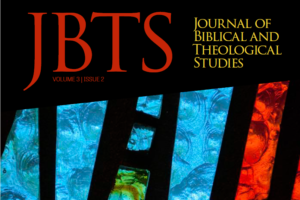Photo credits: “Wait Here: Entrance to the waiting room at the municipal airport, in Washington, D.C. 1941” by polkbritton is marked with Public Domain Mark 1.0.
These four spirits shed their earthly names when they shed their earthly bodies. They are awaiting their new names that Christ will give them “at the end of the age.” They are herein identified by letters.
A: He is a layman who through most of his adult life diligently read and studied the Bible nearly every day.
B: He is an ex-convict who came to Christ on his deathbed.
C: She is a housewife who was married to a prominent lawyer who gave generously to their church.
D: He is a Protestant theologian of some esteem in academic circles.
The conversation begins as these four spirits encounter each other for a time while in “restful repose.” How precisely these encounters take place, since they have no bodies, they have not yet determined.
B: You know, I thought heaven would be a lot better than this. I mean, it’s kind of boring. All we do is hang out.
A: That’s because this isn’t heaven.
C: What is it then?
A. This is what the theologians call the Intermediate State.
B: What’s that?
A: Well, I’m not all that sure really, because that phrase doesn’t actually appear in the Bible, but it is supposed to be where believers like us who died rest as we await the final judgment.
B: The Final Judgment. I don’t like the sound of that.
A: Oh, you don’t have anything to worry about it. We’re saved by faith, not works. The Bible is clear on that point.
C: Yes, that is what our preacher said nearly every Sunday. We rely for our salvation not on what we do but on Christ who suffered on the Cross for us and took our sins upon himself.
A: That is very true. You have stated it perfectly.
C: Thank you.
B: B sighs loudly. Well, if we’re saved by faith, why do we have to go to some final judgment? And what is this place anyway? Is it Purgatory? It feels like Purgatory to me.
A: Purgatory is just some Catholic thing. Catholics are right about one thing though. We are judged according to our works. The Bible is also clear about that.
C: C sighs as well. If she were still in her body, she would also likely frown. You know, I was always confused about that. If we’re saved by faith and judged according to our works…well, it just seems confusing.
A: What did your pastor say about it?
C: I’m trying to think. He talked about living out your faith and stuff like that, but he never really told us what that had to do with being saved. He just always went back to his line that we’re saved by faith. Then he often asked for money, nicely and politely of course. My husband and I always came through on that. Boy, I’m sure glad we did, what with good works being so important.
B: Well, I don’t like that business about being judged according to our works. I had enough of that back on earth in human courts. I expected God to run a better show than those crooked judges and lawyers did. They were worse than most of us cons, if you really want to know the truth.
C: I wouldn’t worry. I think it’s just a formality, the final judgment I mean, at least for us.
B: If it’s just a formality, why do we have to do it then?
A: Well, that’s what the Bible says. Everybody has to appear before the Final Judgment, believers and non-believers alike, and everybody is judged impartially without favoritism.
B: I really hate the sounds of that.
At this point the theologian floats into the chat.
D: I couldn’t help but overhear your very vigorous and interesting discussion.
A: A seems relieved. Apparently, A and D have met previously. Maybe you can help us out then. Can you explain to us this Intermediate State, and why it’s so necessary?
D: Well, it’s kind of hard to go into now in much detail without my academic papers available to me. Suffice it to say that there are many passages from both the Old and New Testaments that point to it. What it comes down to is that our spirits need some place to reside between when our bodies die and when we appear before the Final Judgment. Some of my colleagues posited some period of what they called soul sleep instead, but obviously that wasn’t correct, since we are all here fully awake.
B: How long do we have to wait around then before this Final Judgment happens and we can finally get our eternal bodies. I’m tired of being a ghost. You can’t have much fun if you’re just a ghost, can’t do much either. How much rest does a spirit need anyway?
D: If D were still in the body, he would no doubt have casually shrugged at this point. No one knows really when Jesus will return and wrap things up, except the Father. It will all happen though when Jesus returns. In the meantime, we are resting in this blissful garden of paradise.
B: What’s so blissful about it, and now I’m worried that I might not be saved after all, especially if works have anything to do with it.
A: Speaking of paradise, have any of you ever run into the repentant thief, you know, the guy who was crucified with Jesus, the one Jesus told that today you will be with me in paradise. Maybe he can fill in some of the blanks. He’s been here long enough, nearly two thousand years by my calculation. That does seem like a long time. I wonder what he does to keep himself entertained.
D: I don’t think he will have much to add. This is paradise, the paradise that precedes heaven for believers. I don’t understand why you’re so peevish about it. It all makes perfect sense to me.
B: B grumbles. We could be stuck in this paradise forever. It sounds like a racket if you ask me. You sure someone isn’t making money off this deal. I bet down on earth they’re writing books on this kind of stuff and making a ton off it. And I thought I was a crook.
D: D would smile if he were still in the body. I can assure you that everything done here is above board. It all fits together like a beautiful puzzle. My colleagues and I have it studied for centuries.
C: C would stare pensively into the distance if she were still in the body and there was a distance to stare into. You know, in church one time when the preacher was telling us that we are all saved through Christ and not through our own efforts, he said something about all our works, even the best of them, being inadequate in God’s sight.
A: A suddenly becomes excited since he gets to refer to the Bible. Yes, in Isaiah, I forget the exact verse, but it says that all our works are nothing but dirty rags, that was the phrase, dirty rags.
B: Well, if they’re all dirty rags, what’s the point of judging them in court? God could just issue a summary judgment against them, and then we could all go to heaven without all the evidence of our dirty deeds being brought out in public. Do they have summary judgment here?
D: D suddenly becomes somber. Oh, I think there is a slight misunderstanding among you kind souls. Faith without works is dead, you know. That’s quite clear. Those in my profession refer to this branch of theology as soteriology. D’s mood suddenly perks up. I wrote many papers on the subject. It’s quite involved, but very invigorating, intellectually I mean.
A: You mean, we’re not saved then purely by faith.
D: Oh no, works have salvific value. That’s quite clear.
A: You mean as evidence of faith. In other words, to make sure one’s faith is genuine.
D: D would now clear his throat if he had a throat. Well, some of my less enlightened colleagues analyze the issue in those pedestrian terms. However, I prefer a more elevated view. In fact, I could quote one of my more prominent colleagues, I forget his name at the moment, but he wrote that God’s grace is given to believers to empower them to do good works that far exceed what they would otherwise be capable of on the basis of human effort alone. Thus, God’s grace allows us to do works that are of themselves meritorious of salvation. It is by these works that the believer is truly saved.
A: A hurriedly jumps in. But doesn’t the Bible say that all our works, even the best of them, are just dirty rags? I’m sure I read that in Isaiah someplace.
D: D at this point would dispense a kindly, patristic smile at his less educated companion if he still had a face. Oh, one should not take individual passages out of context. Scripture must be interpreted as a whole. It’s one of the first lessons we learn at seminary.
B: What about me? B groans.
D: What about you? D asks dryly.
B: I came to Christ on my deathbed. I didn’t have any time to do any good works, empowered or otherwise.
D: Oh, you must have had some opportunity, even if it was just a kind word offered to a bystander in passing.
B: B would at this point shake his head gloomily if he still had a head. No way. The bullet hit me in the chest, and as I was lying on the side of the road bleeding my guts out with no one around to help me, I said, Jesus, help me, and a second later I ended up here. Why I said Jesus help me, I have no idea. I never went to church a day in my life. It just came to me somehow.
D: Well, deathbed conversions are an interesting case. I was about to write a paper on the subject, before, well, let’s just say I ran out of time.
C: C suddenly looks very worried, if she still had a face by which to express such emotions. You know, I really can’t say that when my husband and I gave money to the church that we were empowered solely by God’s grace. I think getting a spot on the church’s governing council might have had something to do with it.
B: B quickly interjects. You’re in the same boat I am then. This Final Judgment business is looking scarier and scarier all the time.
A: A also seems concerned now. And God judges our works impartially. God is always just and fair. We don’t get any brownie points just because we’re believers.
C: I didn’t think we needed any brownie points. That’s what our preacher said anyway.
D: Your minister no doubt assumed that the salvific power of works would take care of itself so long as you believed strongly enough.
B: Believed strongly enough? I didn’t have time to believe strongly enough.
A: I must say that the more we discuss this issue, the dicier the Final Judgment looks to me. I thought that in the Intermediate State we would be free from all worry.
B: Great! Now, we have to wait around for who knows how long just floating around without bodies to have any fun in, and to top it off we have to worry about whether we’ll even get into heaven.
D: Well, I think I must take my leave now. Happy to be of service.
B: B would now wag his finger at the good Professor, if he still had a finger. You’re not off the hook either, Pal. I bet if I could study your life, I could come up with a lot of nasty stuff too, maybe even worse than what I did.
C: Oh, this is just awful, she moans. I wish my preacher would hurry up and die so I could ask him about this. I wish he would have explained all this while I was still corporeal. He probably thought we were too stupid to understand. I am sure that there must be a reasonable explanation. Jesus wouldn’t keep us in this state of uncertainty, would he? It just doesn’t sound like Him.
The discussion ends abruptly as the breath of the Holy Spirit sweeps them all away.
THE GOOD NEWS: This discussion will never take place. The reason is that believers are resurrected bodily immediately upon their death. There is no more judgment for them because Christ has already finally judged them while they were still on the earth. See the correct translation of 2 Cor. 5:10 discussed in various articles appearing on this blog. The post-death picture for non-believers is not so bright. They are held for a time in Hades (see the parable of the rich man and Lazarus) until they are finally judged bodily before the Great White Throne. This is the venue they have chosen of their own free will by rejecting Christ and any need for a savior and instead relying on their own merits. In his mercy, God has afforded them a fair tribunal in which they can make their case.





Leave a Reply
Your email is safe with us.